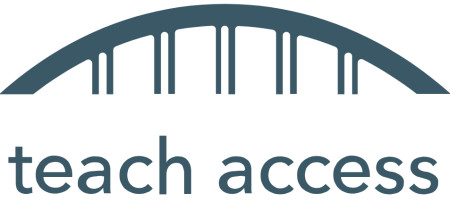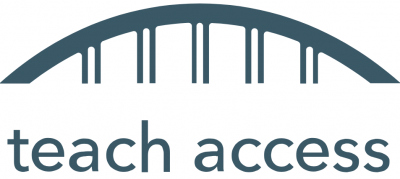Teach Access Paves the Way for Teaching Digital Accessibility
Nonprofit group’s collaboration with industry, higher education, government, and disability advocacy organizations has goal of teaching 1 million students how to make technology work for disabled people.

EATON RAPIDS, Mich., March 5, 2024 (Newswire.com) - Beginning as a grassroots, 100% volunteer initiative in 2016, Teach Access has now educated more than 500,000 students on digital accessibility, a milestone in the national nonprofit group’s mission of developing a workforce that designs technological products and services with the needs of disabled people in mind.
The mission of Teach Access is to close the accessibility skills gap by providing a pipeline of skilled workers to industries so technology can be born accessible.
It does so with a novel approach: Teach Access does not provide workforce training for employers, but instead focuses on the education space, collaborating with colleges, the technology industry and advocacy groups to build curricula that will teach the future workforce about digital accessibility and universal design.
“We aim to create systemic change within education, so all students learn the fundamentals about disability and digital accessibility, creating a pipeline of future employees who can create technology accessible and inclusive for everyone,” said Kate Sonka, executive director of Teach Access.
Teach Access was certified as a tax-exempt 501(c)(3) charitable organization in 2021, and provides its resources and services for free, through funding by grants, private donors and industry sponsors like technology giant Google.
“Accessibility is absolutely fundamental to what we do at Google. Yet, we still see that most new grads who join us have never learned about accessibility,” said Laura Allen, head of strategy & programs for accessibility & disability inclusion at Google, and board chair at Teach Access. “We are so excited about Teach Access’ mission and determination to drive this much-needed systemic change and are eager to partner on educating this next generation of students!”
Employers say there is a strong need for the digital accessibility education that Teach Access facilitates, according to the organization’s 2022 Accessibility Skills Gap Survey:
Three out of four respondents (75%) reported a moderate to significant increase for employees with accessibility skills in their organizations in the last five years.
More than 86% anticipated the demand to increase, while only 2% said it is easy for them to find candidates with accessibility skills.
Two out of three reported their products are not as accessible as they would like and are interested in job training for employees.
Teach Access has an ambitious goal and focused strategy to meet those needs. It has a target of introducing 1 million students by 2030 to digital accessibility, via free synchronous and asynchronous programs and resources for students and educators to learn about disability, accessibility, and how to incorporate accessibility into the curriculum.
Teach Access offers courses for educators on the principles of accessible design in disciplines including human-computer interaction, computer software engineering, instructional technology, technical writing and more. It also maintains a curriculum repository, a free collection of open education resources such as syllabi, slide decks, assignment props, discussion questions and quizzes that have been developed by faculty to support teaching accessibility to students in a wide variety of disciplines.
It also provides grants and fellowships to educators to encourage digital accessibility curricula and teaching, and sponsors programs like Study Away, which brings together students, faculty, and industry partners to explore the field of accessibility, and Student Academy, a series of free virtual webinars for students on topics of disability and accessibility.
Teach Access Teach Access has a commitment to ensuring engagement with faculty members in educational programs that are from historically excluded and underrepresented institutions such as historically Black colleges and universities, Hispanic-serving institutions, tribal colleges and universities, community colleges, and minority faculty at predominantly white institutions.
“Technology is developing more quickly than ever, from mobile apps to emerging systems and devices like wearables and sensors, and they are becoming increasingly integral to our ability to work and to conduct our social lives,” Sonka said. “Teach Access is working to ensure a workforce with knowledge of digital accessibility that it needs to make these essential products usable for the disabled population.”
For more information, please visit https://teachaccess.org.
About Teach Access
Teach Access is a non-profit 501(c)(3) organization collaborating with education, industry, and disability advocacy organizations to address the critical need to enhance students' understanding of digital accessibility as they learn to design, develop, and build new technologies with the needs of people with disabilities in mind. Teach Access envisions a fully accessible future in which students enter the workforce with knowledge of the needs of people with disabilities and skills in the principles of accessible design and development, such that technology products and services are born accessible.
Source: Teach Access
